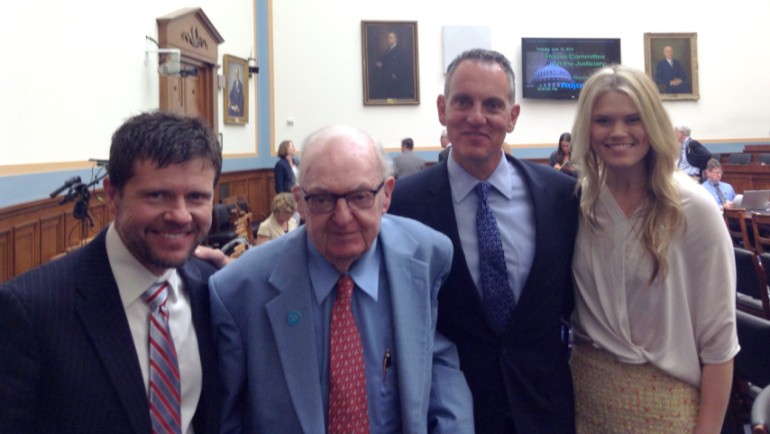BMI CEO Outlines to Congress Needed Changes for Songwriters, Composers and Publishers
O’Neill Tells Subcommittee ‘Everybody benefits from free markets – it breeds innovation’

BMI CEO Mike O’Neill told the House Judiciary Subcommittee on Courts, Intellectual Property and the Internet today that BMI’s songwriters and publishers cannot achieve what a free market would offer them under BMI’s current consent decree and that changes were needed to promote and protect the art of songwriting across America. O’Neill appeared before the Subcommittee, which hosted the first of two hearings on music licensing. These hearings are part of the Subcommittee’s ongoing review of copyright law.
O’Neill noted that most of the current consent decree between BMI and the United States government, which governs BMI’s relationships with songwriters, composers, publishers and the businesses that use their music, was adopted in the mid-1960s – before the Internet, satellite radio and the growth of cable and other modern content delivery platforms. As a result, the rules have not kept pace with the changes in technology, the media industry and the music business over the past 50 years.
“BMI is locked into a business model that might have been appropriate when the Beatles first arrived in America, might have been appropriate when you had to get up from the sofa to change the channel on your television – but is not appropriate for the modern world of rights management,” O’Neill stated.
O’Neill outlined four changes to BMI’s consent decree that would benefit songwriters and those who enjoy their music – and bring music licensing into the 21st century:
- Publishers should have the flexibility to decide when they can choose to use BMI to license their works, and when they can license those works exclusively by themselves.
- BMI should be allowed to license not just the performing right, but any other right its business customers need to deliver content. Online businesses often need multiple rights; BMI is well positioned to provide a “one-stop shop” – a single destination where businesses can secure every right they need for musical works.
- BMI’s rate court should be modernized, moving to a model that is faster, less expensive and more market-responsive for all parties.
- Consent decrees should sunset when the basis for the decree no longer exists. As BMI’s relative strength in the marketplace is impacted by many new participants competing with the organization, it should be allowed to operate on behalf of its writers and publishers on the same terms as its competitors do.
When asked how BMI would respond to publishers negotiating royalty rates separately in a more competitive market, O’Neill noted that BMI would be challenged to compete, and that BMI was up to the challenge.
Also providing testimony on behalf of songwriters and publishers were Lee Thomas Miller, BMI songwriter and President, Nashville Songwriters Association International and David Israelite, President and Chief Executive Officer, National Music Publishers Association.
Read O’Neill’s full testimony and op-ed piece that appeared in The Hill this week.







Community
Connect with BMI & Professional Songwriters